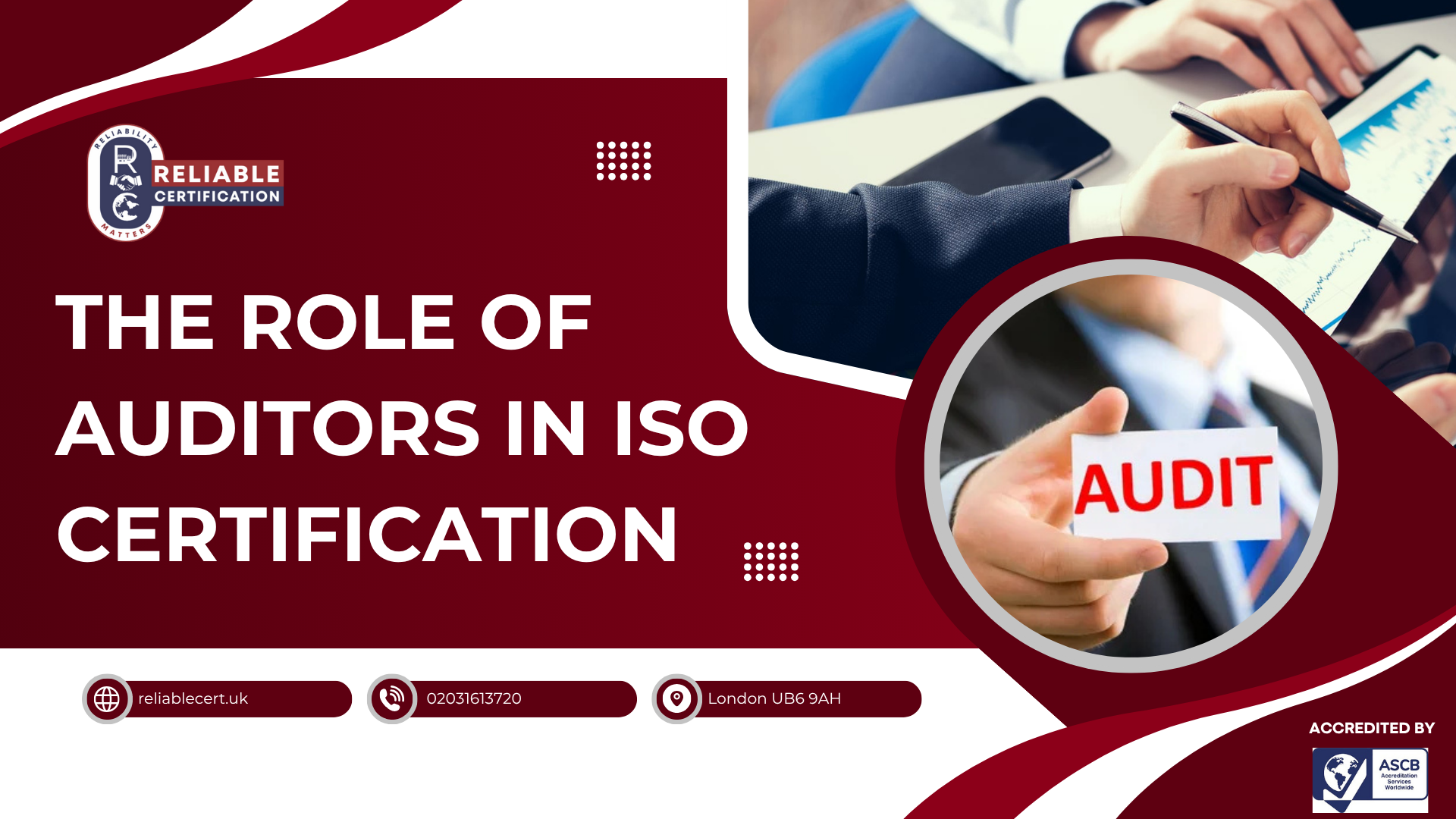Discover how ISO certification auditors help businesses achieve compliance. Learn their role in audits, certification, and maintaining ISO standards.

When a business decides to pursue ISO certification, one of the most crucial roles in the process is that of the ISO certification auditor. These professionals are the gatekeepers of quality, compliance, and credibility. But who exactly are these auditors, what do they do, and why are they so essential to the certification process?
In this blog, we’ll explore the role of auditors in ISO certification, the stages they’re involved in, and how they help ensure your business meets international standards.
Before diving into the auditor's role, it’s essential to understand why ISO certification is so important for businesses:
However, ISO certification is not just about ticking boxes. It’s about building a culture of continuous improvement. That’s where the ISO certification auditor comes in.
An ISO certification auditor is a trained professional who assesses whether your organization complies with the selected ISO standard (such as ISO 9001, ISO 14001, or ISO 27001). These auditors work for accredited certification bodies and conduct formal assessments to determine if your management systems meet the requirements.
Auditors may specialize in different sectors and standards. For example:
Their job isn’t to catch you out; it’s to verify whether your system is effective, compliant, and continuously improving.
Let’s break down the major responsibilities of an ISO certification auditor during the certification journey:
Some auditors perform pre-audit assessments or readiness reviews to help businesses identify gaps before the formal audit.
While not mandatory, this stage helps businesses feel more confident about the actual assessment.
In the first formal phase of the audit, the ISO certification auditor evaluates your documented management system.
This includes:
At this stage, auditors also assess whether you're ready for Stage 2, which involves a deeper, on-site audit.
This is the core part of ISO certification. The auditor visits your workplace to verify whether what’s written in your documents is being followed in practice.
During this audit, the ISO certification auditor will:
This step ensures your management system is not only well-documented but also effectively implemented.
At the end of the audit, the auditor provides a formal report outlining:
If major non-conformities are found, the certification may be delayed until they’re corrected. For minor ones, you may be granted certification with conditions to improve.
If your organization passes the audit successfully, the ISO certification auditor will recommend you for certification to the accredited body.
The certification body then reviews the report and issues your ISO certificate, usually valid for three years with ongoing surveillance audits.
The role of the ISO certification auditor doesn’t end with certification. They return annually to ensure continued compliance and improvement.
Auditors play a vital role in helping your business stay on track and aligned with ISO standards.
Not all auditors are the same. A great ISO certification auditor brings more than just technical know-how—they bring perspective, professionalism, and a collaborative spirit.
A good auditor will not only assess but also inspire improvement.
Not true. Their job is to assess compliance, not penalize or embarrass your team.
ISO standards are about effectiveness, not perfection. Continuous improvement is the key.
Documentation is important, but auditors are equally concerned with real-world application.
Understanding their real role helps reduce fear and fosters collaboration.
Being well-prepared can make the audit smoother and less stressful.
Proper preparation shows maturity in your management system and builds a positive relationship with the auditor.
ISO certification is more than a badge; it's a commitment to quality, consistency, and improvement. And ISO certification auditors play a pivotal role in making that possible.
They help organizations:
By understanding their role, preparing effectively, and approaching audits as opportunities, businesses can get the most out of their ISO certification journey.
Need support with audits or ISO compliance?
Let our experienced team guide you through the ISO process and connect you with trusted certification auditors. From gap analysis to post-audit support, we’re here to help your business succeed.
Typically replies within 30 minutes